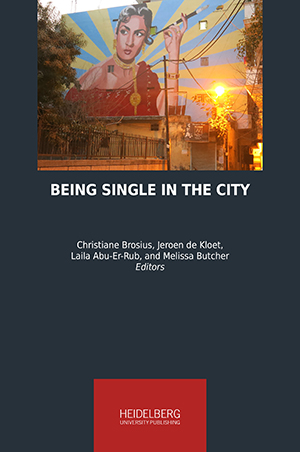How to Cite
License (Chapter)

This work is licensed under a Creative Commons Attribution-ShareAlike 4.0 International License.
Identifiers (Book)
Published
Technotopias, Consumer Cultures, and the Gendered City
Abstract Discourses of post-colonial urbanism are characterized by a pervasive emphasis on technology as panacea to problems of governance, policy, and social interaction. The idea that technology will overcome deep-rooted structural malaise and lead to administrative “efficiency”, “clean” governance, and “reformed” urban spaces where everyone has equal access, has wide currency. This chapter explores how this “technologicalturn” in Indian urbanism plays out in relation to the politics of gender and, particularly, anxieties relating to single women in the city. The discussion deploys two key theoretical frameworks—“postnationalism” and “moral consumption”—to characterize processes peculiar to contemporary Indian modernity and, subsequently, to think through them about relationships between techno-positive discourses of the city and gender. It proceeds through exploring three interlocking processes—at national, city, and neighborhood levels—through which meanings of urban spaces, autonomy, and gender are produced. These are the discourses of “smart cities,” an app intended to be used by women to mark out “safe” and “unsafe” spaces, and a “guideline” produced by the University Grants Commission of India (UGC) on the “appropriate” ways in which young (single) female students should conduct themselves within university campuses. The chapter draws attention to the entanglements of the different kinds of discourses operating at multiple levels of Indian life, that are, in turn, grounds for producing the idea that technology is a “solution” to social problems. This techno-politics, the chapter argues, effaces the functioning of power as far as relations of gender are concerned.
Keywords urban techno-politics; gender and technology; city and women; masculinity and the city






